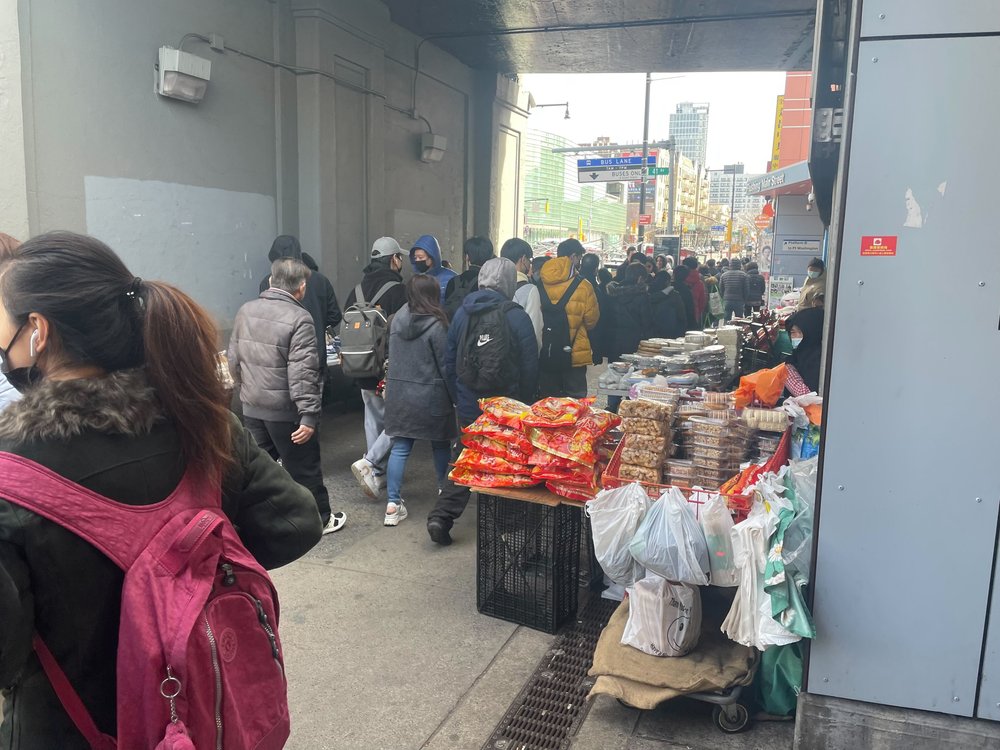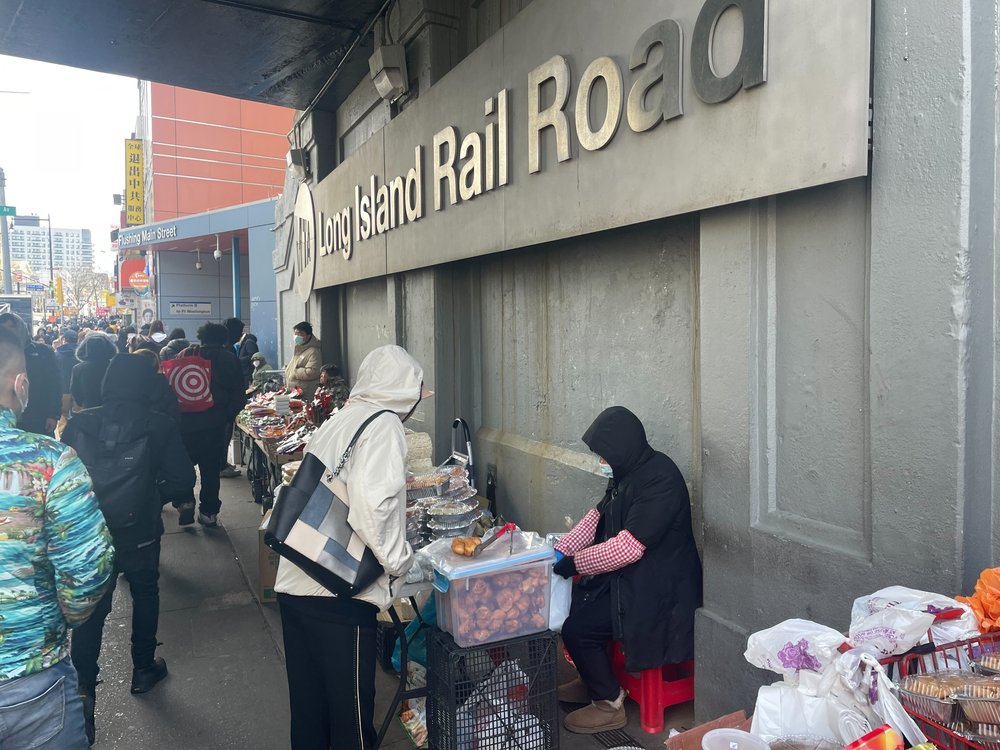Queens councilmember calls street vendors a public safety hazard
March 11, 2023, 11 a.m.
Councilmember Sandra Ung has started a petition to increase enforcement in Downtown Flushing.

A Queens councilmember has started a petition asking city officials to clear all street vendors out of Downtown Flushing, saying they are putting the public’s safety at risk.
Councilmember Sandra Ung said the Department of Consumer and Worker Protection and the NYPD, which share responsibility for enforcing vendor rules, have allowed vendors in the area to get out of control. She said the area has become overrun with illegal activity like pickpocketing and illegal cannabis sales.
Ung said that the "lack of enforcement" has "created a sense of lawlessness that attracts criminal elements,” at a press conference this week near the Flushing LIRR station. As she spoke, she was surrounded by vendors selling electronics, fruits, vegetables and clothing.
Ung added that her office has also heard from older people and people with disabilities who need to shop at local supermarkets, but say it's dangerous for them to move around the area because it is so crowded.

Mohamed Attia, managing director of the Street Vendors Project, said vendors are not to blame for an increase in crime. Rather, he said they “serve as the eyes and ears on the streets,” making the area safer.
He said the city should educate vendors about the rules instead of asking them to close down, giving them hundreds of dollars in fines, and even occasionally seizing their property.
“Street vendors support, serve, and contribute to the public safety in any neighborhood,” he said.
Dian Yu, executive director of the Flushing Business Improvement District, said that the streets need to be cleared for legitimate businesses.
“A city agency cannot have a double standard of law: one for business owners and another for illegal vendors,” said Yu.
Vending has been prohibited in Downtown Flushing since 2018. According to Michael Lanza, the DCWP's press secretary, the agency has conducted nearly 2,000 inspections in Flushing in the last two years, issuing violations and coordinating confiscations with police and other city agencies. In that time, it has issued 163 summonses, Lanza said.
But Ung said it seems that enforcement is not enough, given the number of vendors operating near the railroad station every day.
“This does not work in Downtown Flushing,” she said.
Street vendors have always struggled to operate legally. Many are ticketed because they lack general vendor licenses, but there are only 853 of those available citywide and the 12,000-person waiting list has been closed for more than a decade.
Rengang Wang, a vendor who sells antiques and secondhand goods at a stand near the local post office, said Ung’s position threatens the livelihoods of people who have no other way to survive in one of the world's most expensive cities.
“At a time when eggs are costing three times the amount they have been, it's really difficult for folks,” Wang said through a Mandarin translator. Wang said a lot of vendors are there because they don’t have a choice.

Wang says that he took up vending during the pandemic as a means to stay afloat after he lost his job teaching martial arts. He says that if he is forced to quit, he doesn’t know what he will do since he and his wife are already accepting financial support from friends.
“It’s a desperate situation out there for a lot of us, sometimes people sell less than $100 [in merchandise] every day,” said Wang.
And while he agrees that people need to do a better job of taking up less space on the sidewalk, he says it isn’t a threat to public safety.
“There needs to be a way to make enforcement less punitive and to work together to achieve a system where everyone can still be out there to make a living but not take up so much space,” said Wang.
“Because I don’t want to be a burden to my community and the way that enforcement is being approached right now just creates conflict,” he said.